WKLiza Gross
Independent journalist
Organizing:
-
Tuesday, October 16th, 8:00 am to 5:00 pm
Independent journalist
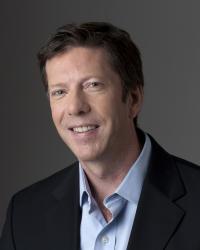
Science correspondent, NPR News, Washington, D.C.
Jon Hamilton has been a science correspondent at NPR News since 1998. His current beats include neuroscience, environmental health risks, biomedicine, and extreme weather. Recent stories have looked at how blast waves from some military guns may damage the shooter's brain, evidence that Alzheimer's disease involves an ancient immune system in the brain, and the ethical questions faced by scientists growing "mini-brains" in the lab. In 2014, Hamilton was part of the NPR team that traveled to West Africa to report on a major Ebola outbreak.
Twitter: @NPRjonhamilton
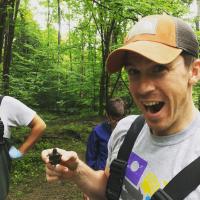
AGU's Sharing Science program, American Geophysical Union, and producer and co-host of the Story Collider, Washington D.C.
Shane Hanlon co-leads the Sharing Science program, which helps scientists share the value of their work with wider audiences — everyone from community groups and K-12 students to media and policy makers. The Sharing Science team leads customized, interactive workshops around the country for scientists, science communicators, and others. Shane will describe these workshops and point attendees to a robust collection of online resources that they are free to use.
Twitter: @EcologyOfShane
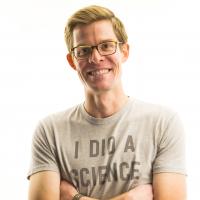
YouTube creator/host/producer, PBS Digital Studios, Austin, Tex.
Joe Hanson, Ph.D., is a science writer, biologist, and YouTube educator. He is the creator and host of “It's Okay To Be Smart,” an award-winning science education show, and creator and co-host of “Hot Mess,” a show about climate change and the environment, both from PBS Digital Studios. He received his Ph.D. from the University of Texas at Austin, and his science writing has been published by WIRED, Nautilus, Scientific American and Texas Monthly. He lives in Austin, Tex.
Twitter: @DrJoeHanson
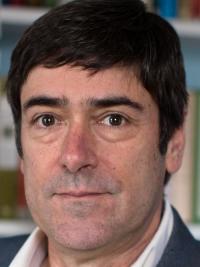
Science correspondent, NPR News, Washington, D.C.
Richard Harris has covered science, medicine and the environment for National Public Radio since 1986. His award-winning work includes reports in 2010 that revealed the U.S. government was vastly underestimating the amount of oil spilling from the Macondo blowout in the Gulf of Mexico. He also shared a Peabody award with colleague Rebecca Perl for their 1994 reports about the tobacco industry's secret documents, which showed that company scientists were well aware of the hazards of smoking.
Harris has traveled the world, from the South Pole and the Great Barrier Reef to the Arctic Ocean, reporting on climate change. The American Geophysical Union honored him with a Presidential Citation for Science and Society.
In 2014, he turned his attention back to biomedical research and came to realize how the field was suffering. Too many scientists were chasing too little funding. That led him to take a year-long sabbatical at Arizona State University's Consortium for Science, Policy and Outcomes to research and write Rigor Mortis, which examines the so-called "reproducibility crisis." It is his first book.
Harris grew up in the San Francisco Bay area and earned a bachelors degree in biology at UC Santa Cruz. He graduated with highest honors and spoke at commencement. He started his career as a AAAS Mass Media Science Fellow at the now-defunct Washington Star, under the sage guidance of Cristine Russell. In his first full-time reporter job, at the Livermore (Calif.) Tri-Valley Herald, he discovered that the Lawrence Livermore National Laboratory was working on a new generation of nuclear weapons — ones that use nuclear explosives to generate energy beams. Scientists at the time contemplated putting these weapons in space to shoot down incoming missiles.
Harris has two grown children. He lives in Washington, D.C., which he traverses on his bicycle on his daily commute.
Twitter: @rrichardh
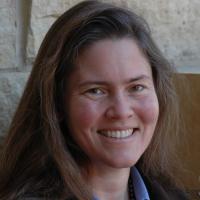
Health, science and environment editor, the Washington Post, Washington, D.C.
Laura Helmuth is the president of the National Association of Science Writers and the health, science and environment editor for the Washington Post. She has edited for National Geographic, Slate, Smithsonian, and Science magazines. She serves on the advisory boards for High Country News and Spectrum. She has a Ph.D. in cognitive neuroscience from the University of California at Berkeley and attended the UC Santa Cruz science writing program.
Twitter: @laurahelmuth
Freelance
Editor, Shots health blog, NPR
E&E News
Buzzfeed
Director, media relations, Johns Hopkins Medicine
Science and health editor, Buzzfeed, New York, N.Y.
Virginia Hughes oversees the science and health desks at BuzzFeed News.
Twitter: @virginiahughes

Junior staff writer, Wirecutter
Sabrina Imbler is a junior staff writer at Wirecutter, a product review site owned by The New York Times. She writes a monthly column at Catapult called "My Life in Sea Creatures," which fuses memoir and marine biology. Her writing also appears in Audubon, Scientific American, and Grist.
NASA
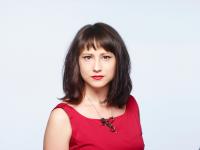
Senior director, science & innovation, National Geographic, Washington, D.C.
Victoria Jaggard currently serves as the senior director of Science & Innovation for National Geographic, with a special focus on astronomy and paleontology.
Before joining National Geographic, Jaggard was the web science editor for Smithsonian magazine. She has also served as physical sciences news editor for New Scientist and as a reporter for Chemical & Engineering News. During her career, Jaggard has chased tornadoes in Colorado, witnessed the last space shuttle launch, and held an astrolabe used by Galileo. She received a degree in science writing/journalism from Lehigh University.
When she’s not geeking out over space, Jaggard can be found playing video games, watching anime, or singing in the nearest karaoke bar. She lives in Washington, D.C.